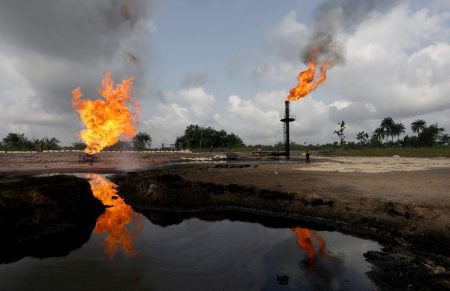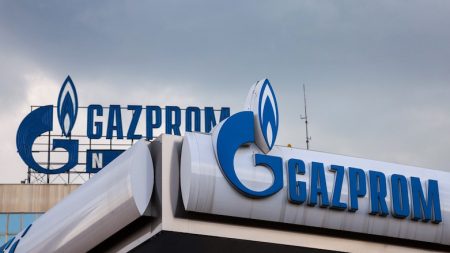 13 November 2014, Lagos – GHANA has continued to lament the extra costs incurred to run its Volta River thermal plant, due to alleged unreliable gas supply from Nigeria.
13 November 2014, Lagos – GHANA has continued to lament the extra costs incurred to run its Volta River thermal plant, due to alleged unreliable gas supply from Nigeria.
Four West African nations including Nigeria, Ghana, Benin and Togo had entered into an agreement on gas supply through the West African Gas Pipeline (WAGP), to boost power generation and industrialization of the West African corridor.
Ghana’s Volta Riva Authority however said the nation has been spending $55million every three weeks to purchase crude oil to run the power generation plants in the country, due to unavailability of gas.
The 678-kilometre gas pipeline (WAGP) links into the existing Escravos-Lagos pipeline at the Nigeria Gas Company’s Itoki Natural Gas Export Terminal in Nigeria and proceeds to a beachhead in Lagos. From there, it moves offshore to Takoradi, in Ghana, with gas delivery laterals from the main line extending to Cotonou (Benin), Lome (Togo) and Tema (Ghana).
The Escravos-Lagos pipeline system has a capacity of 800 million standard cubic feet per day (MMscfd), and the system will initially carry a volume of 170MMscfd and peak over time at a capacity of 460MMscfd.
WAGP transports purified natural gas free of heavy hydrocarbons, liquids and water, ideally suited as fuel for power plants and industrial applications. Eighty-five per cent of the gas is for power generation and the remaining for Industrial Applications. The Volta River Authority’s Takoradi Thermal Power Plant in Ghana, CEB of Benin and Togo are WAPCo’s foundation customers.
Ghana has however lamented that gas volume of 120 million standard cubic feet per day from Nigeria via the WAGP has been persistently unreliable.
The Volta River Authority (VRA), operator of the thermal plant, said crude oil purchased for running of the power plant has increased significantly, due to erratic gas supply from Nigeria.
Crude oil imports, according to the VRA, rose from 4.87 million barrels in 2012 to 5.17 million barrels in 2013. Crude oil purchases this year is however expected to top the quantity procured last year. One cargo of crude is estimated at 450,000 barrels.
The Authority estimates that a turbine consumes about 5,000 barrels of crude in a day. This requires about $55million every three weeks to purchase crude for powering the power generation plants in the country.
Financing of the crude oil purchases has, however, been very challenging for the Authority given that its tariff covers just 60 per cent of operational cost. The Authority, at certain points, had to fall on Fidelity Bank for loans to purchase crude.
Thermal power generation has come into sharp focus following the challenges posed by hydro-power generation, given poor water inflow into the Akosombo reservoir this year.
Ghana’s own gas deposit offshore Cape Three Points is yet to be piped onshore, after several missed deadlines for completion of the country’s gas processing plant and ancillary equipment to power VRA’s plants in Takoradi.
This has necessitated the request for load-shedding by the Ghana Grid Company Limited (GRIDCo), the entity responsible for power transmission, at certain periods this year to maintain the integrity of their system.
Electricity demand in the country is mainly domestic-led. Domestic electricity consumption currently stands at 62 percent, while commercial and industrial consumption stands at 18 and 20 percent respectively.
Electricity demand increased to an all-time high of 12 percent in 2013, growing from the 2012 peak of 1,728.9 Megawatts (MW) to 1,942.9MW at the close of last year.
Over the last four years, however, the average year-to-year growth in demand for electricity has been about 10 percent.
The peak demand for 2011 was 1,664.3MW, a 10.52 percentage growth over the 2010 demand of 1,505.9MW.
The estimated demand is growing, and current projections indicate that the country’s requirements for electricity will hit 2,764.2MW in 2015.
*Sulaimon Salau – Guardian



